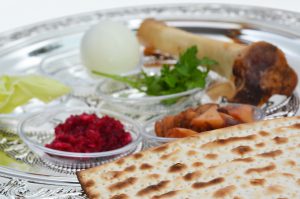< Lesson 7: Heating Up Food On Shabbos Day
Lesson 8: Making Coffee and Tea on Shabbos
In this eighth lesson in the Shabbos (Shabbat) Kitchen series, Rabbi Rappaport demonstrates how to prepare coffee and tea on Shabbos.
Making Coffee On Shabbos
One may not brew fresh coffee on Shabbos, as that would be full-fledged cooking.
The recommended way to drink coffee on Shabbos is using instant coffee, which is very easy to make on Shabbos:
- Pump pre-cooked water directly from the hot water urn into your empty mug (the water must be added to the mug before any other ingredients).
- Instant coffee is considered roasted already, so you may add it directly to the water in your mug, which is a kli sheini (lit. second vessel). Sugar has also been cooked in the processing, so you can add that, too. Milk, again, has been pasteurized – a process of cooking, so it can also be added.
- Your coffee is ready to drink.
Rabbi Moshe Feinstein z”l held that halachically you can make it in the above fashion, but personally, he used a kli shlishi (lit. third vessel) – which he held is the ideal way to do it: Pump water from the urn into a mug, then pour it into a second mug, in which you may add your other ingredients.
Making Tea on Shabbos
Making tea on Shabbos is more complicated. A tea bag has raw, uncooked tea leaves, so one may not put it into a kli rishon (lit. first vessel) or even a kli sheini.
The recommended fashion in which to make tea on Shabbos is as follows:
- Make tea essence before Shabbos: Place tea bags into a small jar or dish of some sort, with some cooked water. Let the tea bags sit in the water for a while, so the water becomes very concentrated (the more tea bags, the more concentrated the liquid will be), and then dispose of the tea bags.
- When you are ready to make your tea on Shabbos: Pump water from the urn into your mug. The fully-cooked tea essence can then be added to your mug, and you can add sugar or anything else that has previously been cooked.
- Bottled lemon juice is pasteurized, and can be added directly to your mug. However, you would not be allowed to add raw lemon, as that would transgress two prohibitions:
- Squeezing juice out of a lemon and into the tea is prohibited on Shabbos, and you would not be allowed to do that under any circumstances.
- The lemon is not previously cooked. Therefore, adding it to your tea, even without squeezing, but rather placing the actual slice into your tea, would constitute cooking on Shabbos.
- A possible solution would be to make your tea in a kli shlishi: Pump water from the urn into a mug, then pour the water into a second mug, and add you lemon slice to soak in the tea. However, it is questionable as to whether this method is permissible. Rabbi Feinstein z”l was of the opinion that one may do so. Not only that, but he also held that you can make tea directly from a tea bag, rather than with tea essence, in a kli shlishi. However, not all rabbis agree, so ask your local Orthodox rabbi as to whether or not you should follow that leniency.
Enjoy your coffee and tea!
Lesson 9: Making Guacamole for Shabbos >
Rabbi Pinchus Rappaport is a respected rabbi who received his Rabbinic ordination from Yeshiva of Staten Island, under the tutelage of Rabbi Moshe Feinstein. He currently serves as a rabbi in Brooklyn, NY.
Since halachic opinions vary among the rabbis of different communities, Oorah and Rabbi Rappaport encourage you to direct any questions to, and get halachic guidance from, your local Orthodox rabbi. You may, however, rely on this video and email Rabbi Rappaport with questions in the interim, at askrpr2@gmail.com.
Shared as a zechus l’iluy nishmas Moshe Zeev ben Aryeh Leib


